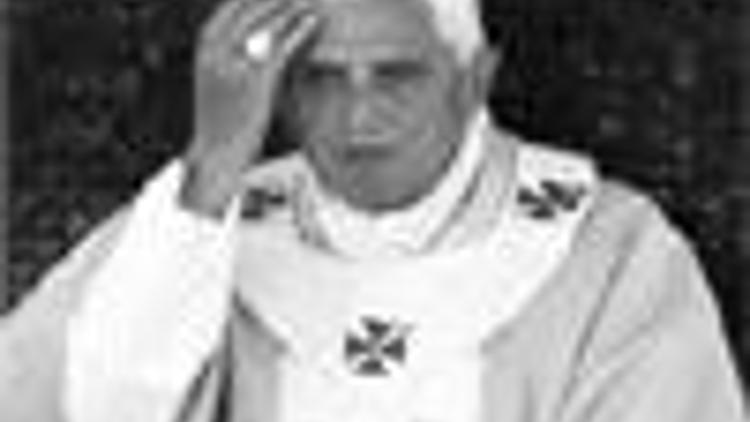Pope in Nazareth: 'Reject hatred and prejudice'
Güncelleme Tarihi:

NAZARETH, Israel -Pope Benedict XVI greeted tens of thousands of adoring followers in Jesus' childhood hometown with a message of reconciliation yesterday, urging Christians and Muslims there to overcome recent strife and "reject the destructive power of hatred and prejudice."
The pope delivered his message on the fourth day of a Holy Land pilgrimage meant to promote peace and unity in the Middle East. Throughout the trip, however, he has been confronted with the region's most sensitive issues, including the legacy of the Holocaust, the Palestinian plight under Israeli occupation and fragile interfaith ties. The choice of Nazareth - home to many key sites in Christianity - as the venue for the largest Mass the pope has celebrated during his visit was at least an indirect reflection of these challenges.
The city, located in northern Israel's Galilee region, is the country's largest Arab city. Roughly two-thirds of its 65,000 people are Muslims and one-third are Christian. While the two communities tend to get along, they also have come into sporadic conflict. Earlier this decade, Muslim activists outraged Christians when they built an unauthorized mosque next to the Basilica of the Annunciation, where Christians believe the Angel Gabriel foretold the birth of Jesus to Mary. Israel later tore down the mosque. Muslim activists also have periodically marched through the city in shows of strength meant to intimidate Christians. In his homily, Benedict spoke of the tensions that have harmed interfaith relations.
Building bridges
"I urge people of goodwill in both communities to repair the damage that has been done, and in fidelity to our common belief in one God, the Father of the human family, to work to build bridges and find the way to a peaceful coexistence," he said.
"Let everyone reject the destructive power of hatred and prejudice, which kills men's souls before it kills their bodies." The comments touched on some of the key themes the pope has focused on during the trip, which a day earlier took him to the West Bank town of Bethlehem - Jesus' traditional birthplace. From there, Benedict issued a ringing appeal for an independent Palestinian state.
The Rev. Federico Lombardi, the Vatican spokesman, said the pope was "very happy" with the outcome of the trip and that "all the important meetings were very positive." Lombardi said Benedict's main goal was "peace, peace, peace," adding that he felt the pope had listened to all sides, acting like a "bridge" between the various positions. The pope was to meet with Israeli Prime Minister Benjamin Netanyahu, who still resists the idea of an independent Palestinian state as Hürriyet Daily News & Economic Review went to press yesterday.
Lombardi said the afternoon meeting would be key because "personal contact is always very important." Members of the region's once large and prosperous Christian communities are increasingly leaving conflict-ridden areas including Iraq and the Palestinian territories to seek better lives in the West. The archbishop of Galilee for the Greek Melkite Church, Elias Chacour, welcomed the pope with a plea for his prayers and "moral and spiritual support" to stem the exodus of Christians from the Holy Land yesterday. He said the flight of Christians "fills me with pain" and that the future is not encouraging.

